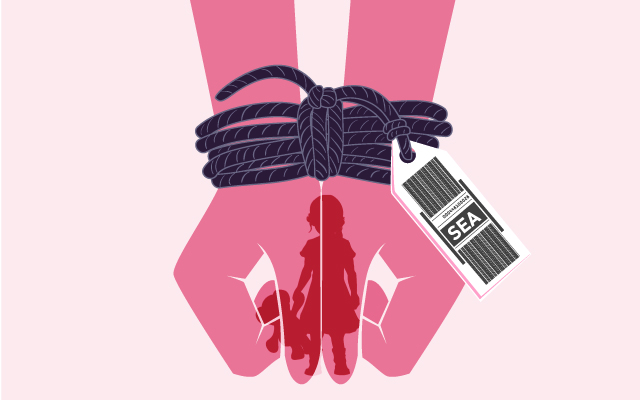Human trafficking is modern-day slavery, affecting more than 40.3 million people worldwide who are enslaved for sex trade, forced labor, and forced marriage. Sexual exploitation means using a person for profit, work, sexual gratification, or some other personal or financial advantage. Child exploitation is a complex issue; extreme poverty can lead parents to sell their children. Unfortunately, many of them are misled into believing that their kids will work for a wealthy family. Samira’s story is one of many stories of women in India and worldwide who have suffered and survived sexual exploitation. At the age of fourteen, Samira’s family pulled her out of school in need of more income. Her brother-in-law assured Samira that he would find her a good job opportunity. Instead, she was handed over to her future traffickers.
The United Nations broadly defines human trafficking as “the acquisition of persons by improper means, as some form of force, fraud or coercion to cause someone to engage in sexual activity without their consent (UNDOC, 2015). Fraud can be false promises of another job or misrepresentation of working conditions. In Samira’s case, she was sold by her relative. “I heard the owner say that it was my brother-in-law who sold me,” says Samira. The force may be physical or sexual abuse or movement restrictions; Samira was beaten with belts by her slaves when she refused to work. After working all day, they would take her and other girls to a building in the middle of nowhere to rest. Because the place was isolated, although they shouted, they were never heard. Isolation, close surveillance, violence, and threats are coercive techniques traffickers use to prevent their victims from fleeing. In addition, traffickers use physical violence to dominate and control their victims. Some of the tactics include starvation, beatings, and rape.
Samira is one of the few women who has escaped captivity while millions continue to be trapped. She was able to escape her captives and ask the police for support. His story is one of the few that ends with a happy ending. However, the lives of survivors of sexual slavery continue to be painful. Returning to her village after years of slavery was overwhelming for Samira. “When I came back, I just stayed home. The villagers would laugh at me and make fun of me. I was ashamed to go out.”
Unfortunately, many sexual slavery survivors do not have access to support services due to their financial situations and the remote locations many live in. Poverty, fear of shame, self-blame, the desire to move on, and social ostracism prevent many victims from seeking help. According to Victims of Trafficking at Human Trafficking Search, “people are often isolated from their social circles, unable to participate socially or seek help.”
Survivors of trafficking often live with the physical and emotional scars left by the violence they faced. Women who escape or are rescued from sex trafficking go through a long and complex physical and emotional recovery process. Common injuries include broken bones, concussions, and brain trauma. Victims also come to experience gynecological health problems that stem from forced commercial sex acts. Such as miscarriages and forced abortions, chronic pelvic pain, gastrointestinal symptoms, premenstrual symptoms, and adverse health behaviors. In addition, condoms are rarely used, and therefore there is an increased risk that forced victims will contract HIV, tuberculosis, and other STDs.
“The psychological impact of victimization can be even more severe than physical violence” (WHO, 2012). Victims who have been rescued or have escaped from sexual slavery have various psychological symptoms and mental illnesses. Post-traumatic stress disorder, depression, anxiety, panic disorder, suicidal ideation, struggles with Stockholm syndrome, and substance abuse are the most common problems faced by survivors of trafficking.
Sexual bondage is not just a problem “elsewhere.” It is a problem everywhere, including the most developed countries. Anyone can be exploited or trafficked, regardless of race, class, education, gender, age, or citizenship. Therefore it is a problem that needs more attention from governments and international institutions so that no woman goes missing and no girl loses her childhood.
